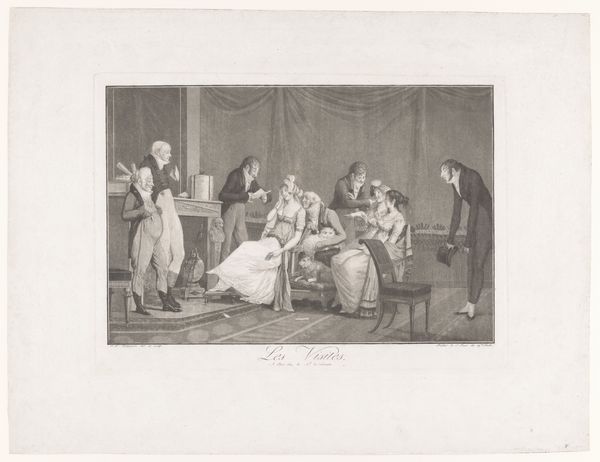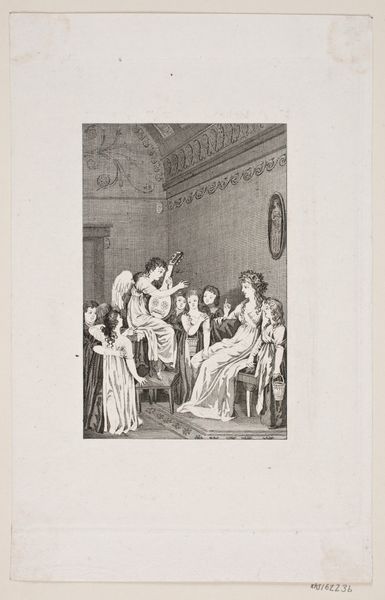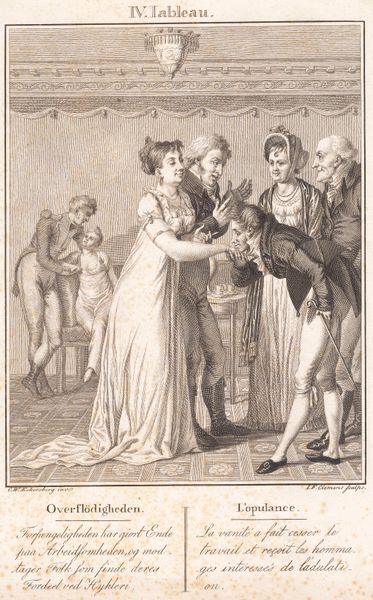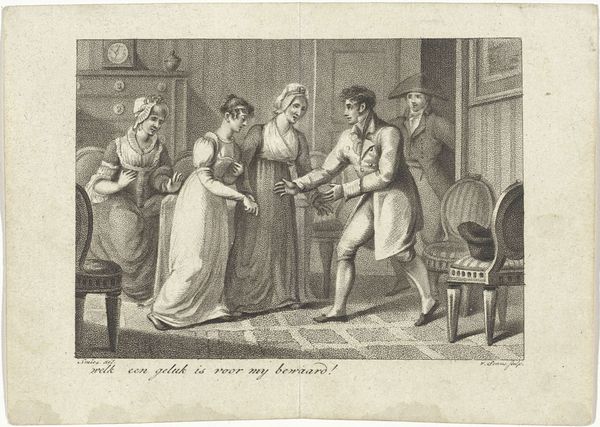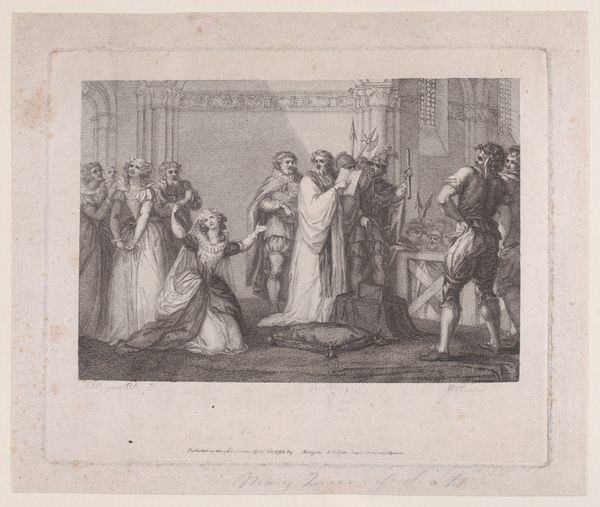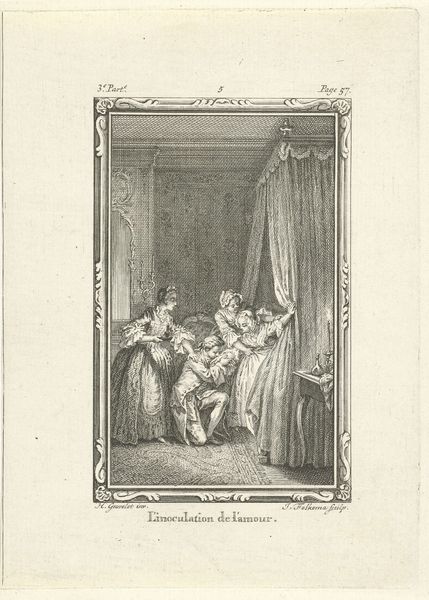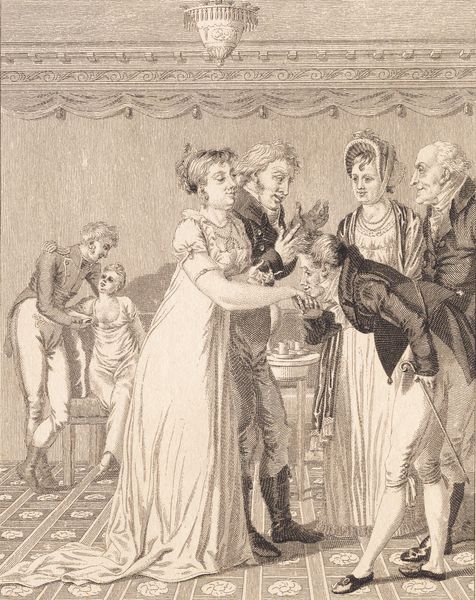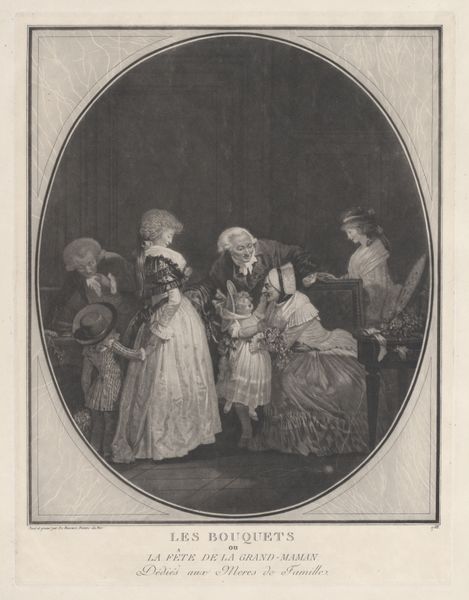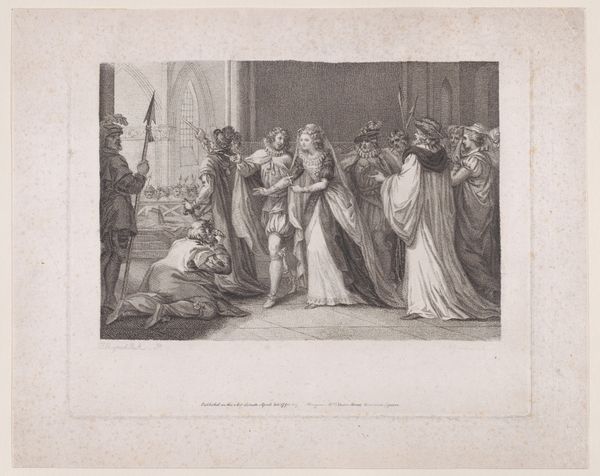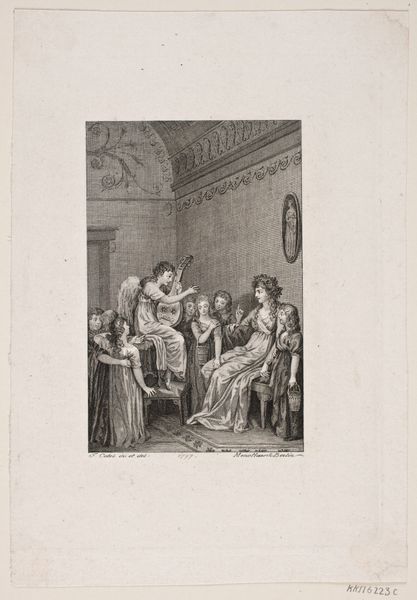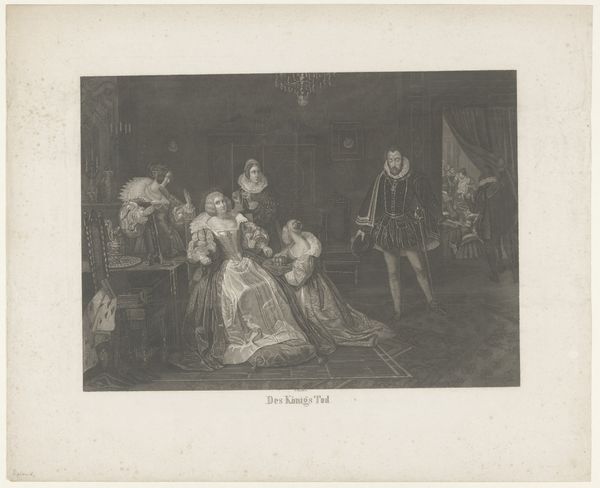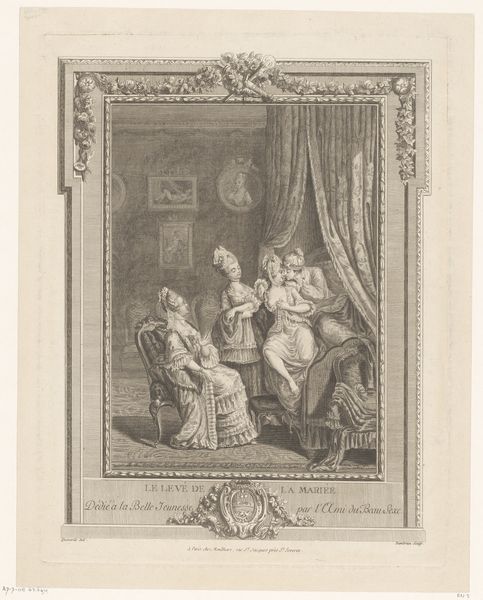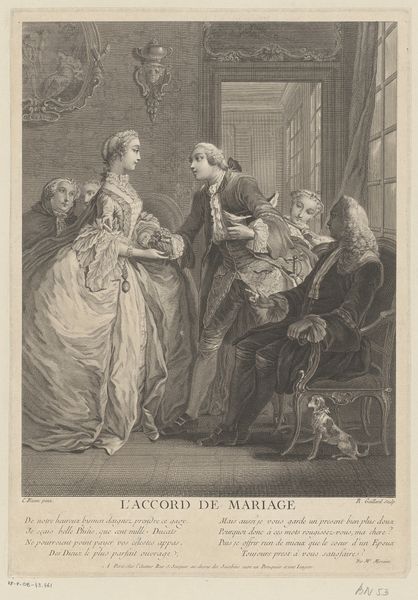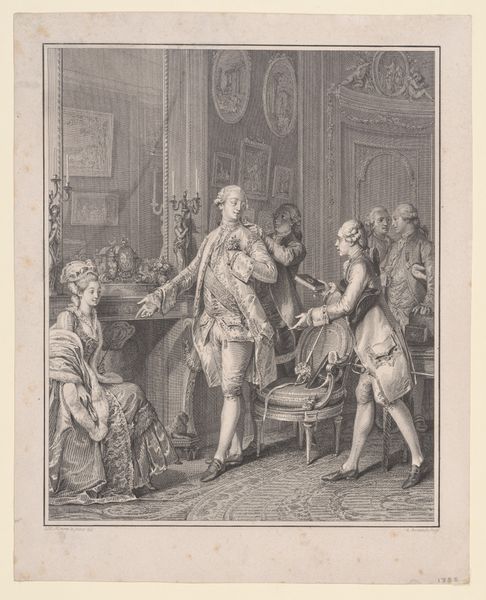
print, engraving
#
neoclacissism
#
16_19th-century
# print
#
19th century
#
genre-painting
#
history-painting
#
engraving
Copyright: National Gallery of Art: CC0 1.0
Editor: This is Louis Philibert Debucourt’s “L'Orange, ou le moderne Jugement de Paris,” an engraving from 1801. It’s quite theatrical, almost like a stage scene. What do you see in this piece beyond the obvious reference to the Judgement of Paris? Curator: Beyond the classical allusion, I see a commentary on social dynamics at play during a period of shifting power structures. Debucourt cleverly uses the print medium to disseminate critiques of class and gender. What is being judged here, really? Is it beauty, or perhaps wealth and status in post-revolutionary France? Editor: That’s interesting. The orange replaces the golden apple, so does the piece become a criticism of materialism and luxury overtaking genuine value? Curator: Exactly. The women vying for attention appear to be performing for the man holding the orange, reflecting the performative nature of social interactions within elite circles. Notice also how the older men observe. Their presence signifies established power, perhaps hinting at the old regime's influence still lingering despite the revolution. How does this power interplay with the male gaze evident in the picture? Editor: So it is more complex than a simple remake of the Judgment of Paris! There is a whole commentary on post-revolution French society embedded in the image. Curator: Precisely. And how this work circulates is part of that social context. The engraving could be purchased by a range of buyers; with access to this imagery comes power of knowledge of those in higher society. Editor: That really makes me think differently about the image! The artist provides us not just an artwork, but an early mass-produced form of social commentary that might subvert those powers. I appreciate the insights into gender, class, and the revolution that you've offered! Curator: And I appreciate your willingness to engage critically. Looking at art as a product and commentary on social power can really open it up.
Comments
No comments
Be the first to comment and join the conversation on the ultimate creative platform.
